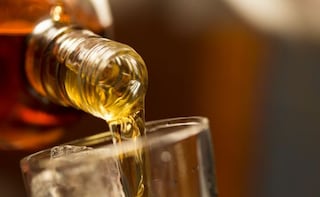In scientific literature, alcohol has been recognized as a depressant, It may give your a temporary high that makes you feel good but in the long run it can have some really harmful consequences. The side effects depend on kind of alcohol you take regularly and also the amount. While it remains an undisputed fact that drinking excess of alcohol is bad for your health, a new study suggests that even half a pint can prove hazardous in a long run increasing their risk of heart disease by prematurely ageing their arteries.
It has been found that excessive alcohol intake may increase high-density lipoprotein cholesterol levels and decrease platelet stickiness. According to lead author Darragh O'Neill, epidemiological researcher at the University College London, "Conversely, heavier alcohol intake may activate certain enzymes that would lead to collagen accumulation, which could, in turn, exacerbate the rate of arterial stiffening."Former male drinkers were also at risk as compared to moderate drinkers who were in early old age.
Surprisingly, the same results were not observed in women. To reach this conclusion, the team looked at alcohol drinking habits of 3,869 participants out of which 73 per cent were males aged between 30 and 50.
It has been found that excessive alcohol intake may increase high-density lipoprotein cholesterol levels and decrease platelet stickiness. According to lead author Darragh O'Neill, epidemiological researcher at the University College London, "Conversely, heavier alcohol intake may activate certain enzymes that would lead to collagen accumulation, which could, in turn, exacerbate the rate of arterial stiffening."Former male drinkers were also at risk as compared to moderate drinkers who were in early old age.
Surprisingly, the same results were not observed in women. To reach this conclusion, the team looked at alcohol drinking habits of 3,869 participants out of which 73 per cent were males aged between 30 and 50.
Advertisement
For the latest food news, health tips and recipes, like us on Facebook or follow us on Twitter and YouTube.
Advertisement
